
Remembering Exile and Transportation: some thoughts from Cape Town
Before I began The Carceral Archipelago project, my research was loosely centred on the history of Indian Ocean penal settlements and colonies, from the late nineteenth century to the Second World War. I have had the good fortune to work in archives across the region, including in Mauritius, India, the Andamans and Australia, and […]
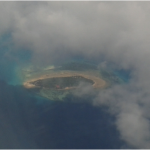
Zanzibar’s Prison Island: The Prison That Never Was, by Sarah Longair
My initial research on peculiar history of Zanzibar’s so-called Prison Island as part of the Carceral Archipelago project began last year delving into the records in the National Archives and the British Library. Relying on Foreign Office correspondence, I was able to piece together some of the original documents of the construction of prison buildings […]
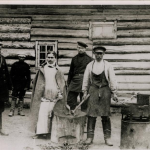
The Carceral Archipelago panel at the Fourth European Congress on World and Global History, 4-7 September, 2014
During the first week of September, members of our European Research Council funded project, Carceral Archipelago, attended the Fourth European Congress on World and Global History, held in Paris at the École Normale Supérieure. While at the Congress, a number of the project’s researchers had the exhilarating opportunity of presenting aspects of their research on a shared […]

Reconsidering Southern African Studies from the Indian Ocean
“Reconsidering Southern African Studies from the Indian Ocean.” This challenge underpinned two wonderful days of discussion at the University of the Western Cape last week. As a conference, we wanted to explore what the burgeoning Indian Ocean historiography and literature means for southern African studies; including how land and sea might come together, in our […]
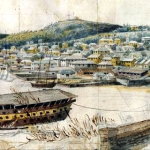
The Convict Hulks of Bermuda
I have long been interested in Bermuda. Like the island that I studied for my PhD thesis, Mauritius, it has no indigenous population. It was settled during the age of European expansion, and developed using indentured servants from Europe and African slaves. In Mauritius the call for a new form of unfree labour in the […]
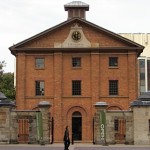
Looking for convict heritage
By Eureka Henrich, CArchipelago Project Researcher I grew up in Sydney, conscious as any Australian school child of my city’s 18th century origins as a penal colony. At primary school we learned the stories through song, such as ‘Bound for Botany Bay’ (narrated by forlorn transportee who warns those back home in England not to […]
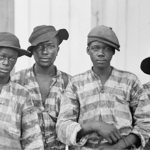
“What Is History For?” Thinking about forced migration and its aftermath
Three days of incredible discussions at NYU Abu Dhabi. “How Migration Makes Meaning” brought together a small group of historians, anthropologists, writers, curators, and creative practitioners of film and photography, to discuss the convergences and coalescences of movement, mobility and circulation around and across the Atlantic and Indian Ocean worlds. Our interdisciplinary focus reaped rich […]
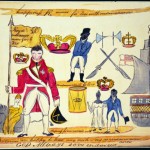
How Migration Makes Meaning
At the weekend, I travel to the UAE to participate in ‘How Migration Makes Meaning: A Conference on Slavery in the Atlantic and Indian Ocean,’ an event hosted by NYU Abu Dhabi. I am looking forward to a productive few days, and the opportunity to work through collectively the intellectual trajectory of connections between Atlantic […]

Recent Comments